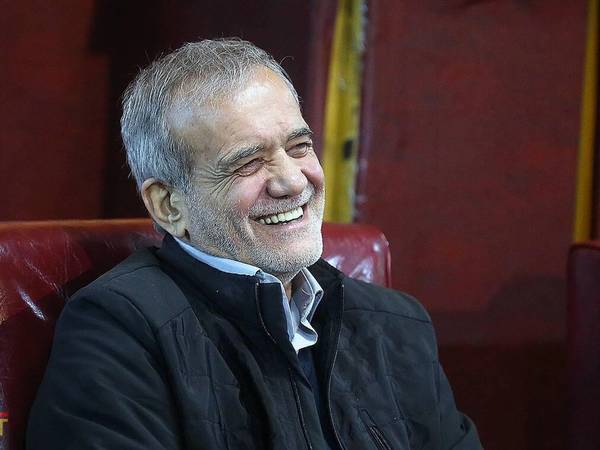Hardliners in Tehran keep blaming other officials for Iran’s economic crisis, despite broad recognition that US sanctions and the state-controlled economy are the main causes of inflation and currency devaluation.
The dominant hardline faction in the Iranian parliament is pushing to impeach Economy Minister Abdolnaser Hemmati just six months into his tenure, despite the economic crisis dating back to 2018, when then-President Donald Trump withdrew from the JCPOA nuclear deal and imposed strict sanctions.
In a show of support for his embattled economic team, President Masoud Pezeshkian visited Central Bank Governor Mohammad Reza Farzin on Tuesday and met with Economy Minister Abdolnaser Hemmati on Wednesday, following the formal submission of the impeachment motion against him.
Nonetheless, Pezeshkian’s appearance in parliament to defend his ministers did not stop the impeachment process from moving forward.
Although the parliamentary session was confidential, hardline lawmaker Hamid Rasai secretly recorded part of the proceedings and shared the footage on social media. The video captured Rasai sharply criticizing Hemmati, Farzin, and Pezeshkian himself.
Qasem Ravanbakhsh, an ultraconservative MP from Qom, sarcastically told reporters that during the meeting, Pezeshkian tried to blame everyone but himself for the country’s economic problems.
In response, Pezeshkian shared a video of his meeting with the economy minister, emphasizing that key economic policies were collectively decided by the country's leadership. He said, “I told the Majles that all banking, monetary, and foreign exchange policies were approved at meetings of the heads of the three branches of government, with Hemmati and Farzin also present. The minister did not set these policies. If anyone is to be blamed for the economic problems, it’s us—the heads of the three branches of government. So, come and arrest us!”
“To blame only one person is unfair,” Pezeshkian added.
Leaving some in the room perplexed, Pezeshkian continued by reciting a verse of classic Persian poetry by South Asian poet Sir Muhammad Iqbal of Lahore (1877–1938). The lines—“Open your eyes to yourself and close your eyes to others. Learn how to see and hear differently.”—did little to address the economic crisis, leaving many unsure of his intended message.
The pro-reform website Rouydad24 attributed Iran's economic troubles to US sanctions and regional tensions, including conflicts with Israel and Trump’s recent move to tighten sanctions. The site overlooked deeper structural issues within Iran’s economy and the disorganized political system that have also fueled the crisis.
Conservative politician Ali Mohammad Namazi told Nameh News that "People need to be convinced that the country's problems can be solved. However, Pezeshkian has failed to assure them that this is possible."
"Iranians are suffering from longstanding issues, and only effective solutions can restore their confidence," he added.
Namazi also warned that "people can no longer tolerate the economic hardships. They are struggling to live normal lives, and public dissent is growing. They might wait in the hope of a government solution, but this patience won’t last forever. Eventually, they will be compelled to protest."
The politician emphasized the urgency for officials to act swiftly, noting that lifting sanctions is the only way to address rising prices and inflation. He warned that without prompt action, the situation could become unpredictable if the inflation rate exceeds 50 percent.
He argued that Pezeshkian cannot claim ignorance of the country’s problems, given his extensive political experience as a multi-term parliament member and a former cabinet minister.
Pezeshkian’s main political rival is ultraconservative Saeed Jalili, who, according to Khabar Online, has obstructed nearly every initiative the president has pursued since June. This includes efforts to ease the compulsory hijab rule to gain women’s support, lift the ban on social media to appeal to young Iranians, and initiate minimal economic reforms.
Yet, despite the significance of this political rivalry, it is not Pezeshkian's biggest challenge. His primary issue is his admission during the election campaign that he had no clear plan for governing the country. This raises the question of how he managed to secure votes, even from the minority of Iranians who participated in the lackluster election, despite openly acknowledging his lack of a strategic agenda.
During the televised debates before the June election, Pezeshkian asked Jalili, “What will you do if Trump wins the US election?” Jalili confidently responded, “I have a plan. What about you?” Pezeshkian replied, “I will consult with experts.” Yet, if he has any expert advisors, they seem to have offered little in terms of solutions for the current impasse.
